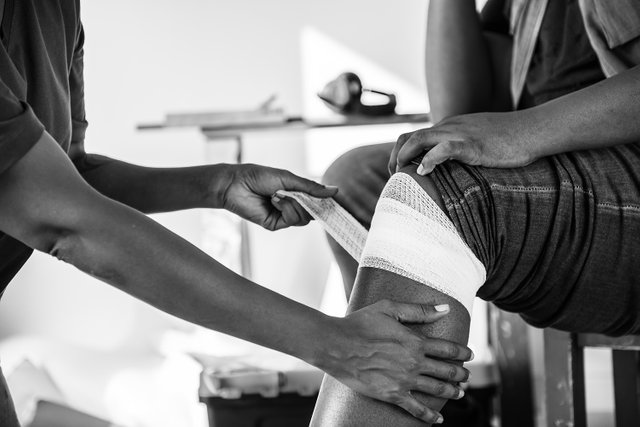
Introduction:
The gym is a place where people come together to challenge their bodies, build strength, and improve their overall fitness. However, an all-too-common phenomenon known as "ego lifting" often takes center stage, where individuals prioritize lifting heavy weights to impress others rather than focusing on proper form, technique, and long-term progress. In this article, we will explore what ego lifting is, its potential risks, and how you can break free from this mindset to achieve more meaningful and sustainable results in the gym.
Understanding Ego Lifting:
Ego lifting is the act of lifting excessively heavy weights beyond one's actual strength capabilities, driven by the desire to show off or gain recognition from others. It involves sacrificing form and technique in favor of lifting heavier loads, which can lead to serious consequences such as injuries and hindered progress.
The Pitfalls of Ego Lifting:
Increased Risk of Injury: Lifting weights beyond your capacity can strain muscles, joints, and ligaments, increasing the likelihood of sprains, strains, or more severe injuries.
Limited Progress: Sacrificing proper form for heavier weights impedes your ability to effectively target muscle groups, slowing down your overall progress and potential gains.
Frustration and Demotivation: Constantly failing to lift heavier weights due to ego lifting can lead to frustration and demotivation, as progress becomes stagnant.
Missed Opportunities for Growth: Proper form and controlled movements are vital for muscle development. Ego lifting may hinder the activation of specific muscle fibers, causing potential growth opportunities to be missed.
Breaking Free from Ego Lifting:
Set Realistic Goals: Focus on setting achievable and personalized goals based on your current fitness level. Progression should be gradual and tailored to your individual capabilities.
Prioritize Technique: Concentrate on mastering proper form and technique for each exercise before increasing the weight. Quality repetitions are more beneficial than a high quantity of sloppy ones.
Seek Professional Guidance: Consider working with a qualified personal trainer who can provide personalized guidance, correct your form, and design a safe and effective workout plan.
Use Progressive Overload Wisely: While progressively challenging yourself is essential for growth, it should be done incrementally and with a focus on maintaining proper form.
Track Your Progress: Keep a workout journal to monitor your performance, track improvements, and celebrate your successes, no matter how small.
Supportive Environment: Surround yourself with supportive and encouraging individuals in the gym who prioritize safety and progress over ego-driven lifting.
Conclusion:
The gym should be a space for personal growth, self-improvement, and the pursuit of optimal health. Ego lifting not only puts you at risk of injury but also hinders your potential for meaningful progress. By letting go of the need to impress others with heavy weights and instead focusing on proper form and technique, you open the door to sustainable growth and better overall fitness.
Remember, everyone's fitness journey is unique, and progress should be celebrated regardless of how heavy the weights may be. Embrace smarter training, set realistic goals, and prioritize safety and form to achieve the results you desire while ensuring a long-lasting and injury-free fitness experience in the gym.
You've got a free upvote from witness fuli.
Peace & Love!
Downvoting a post can decrease pending rewards and make it less visible. Common reasons:
Submit